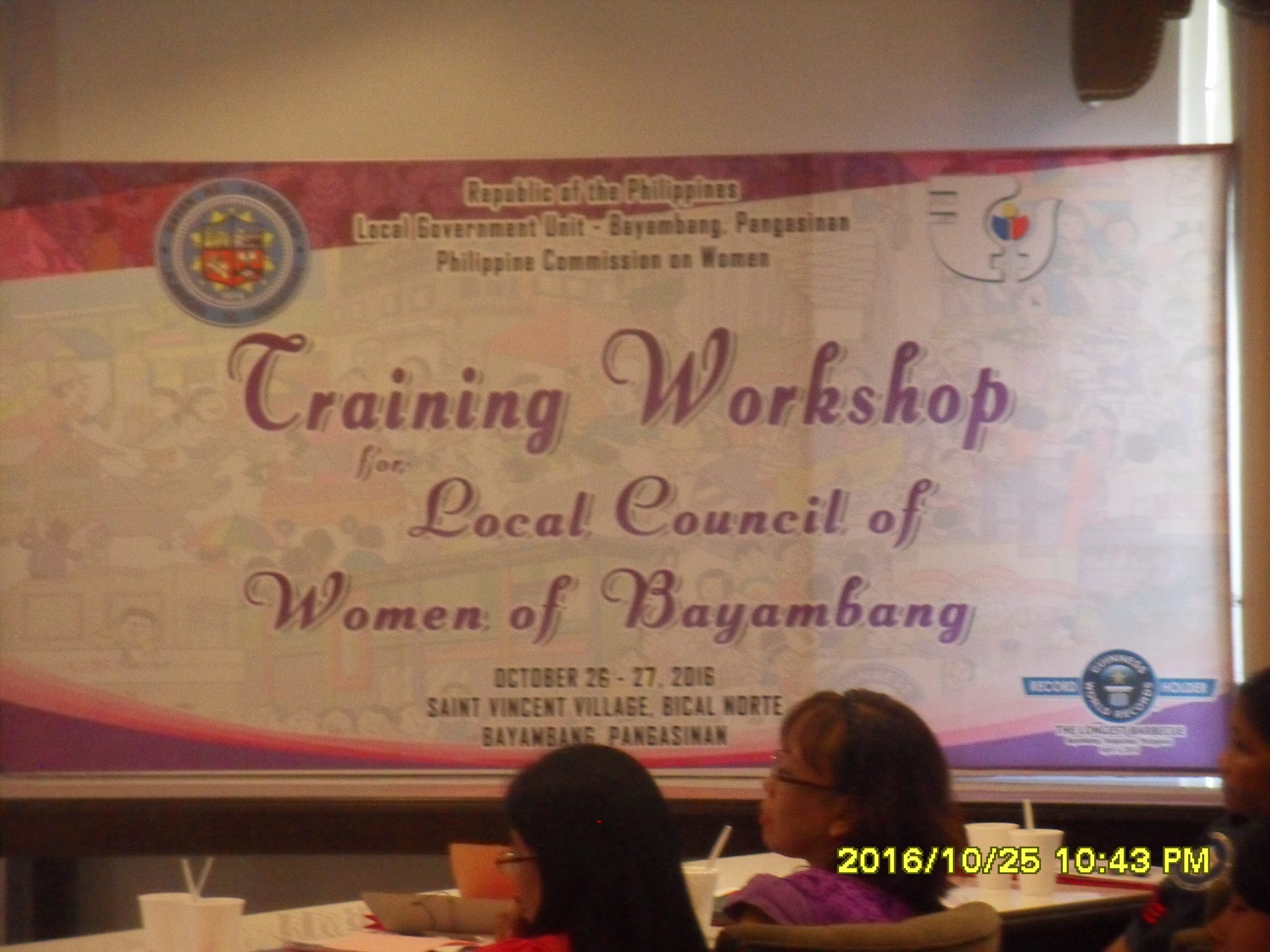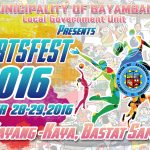A two-day training workshop for the Local Council of Women was conducted by the Philippine Commission on Women in cooperation with the Bayambang LGU on October 26-27 at Saint Vincent Village. The activity was aimed at training women on the basics of gender and development (GAD), in particular women empowerment, gender equality, and gender equity.
Niña Jose welcomed all members and invitees in her capacity as President of the Local Council of Women of Bayambang. Among the attendees were Rotary Club of Bayambang President, Dr. Leticia Ursua, Rotary members Julie Fernandez and Asteria Perez-Wilhelm, as well as the female department heads and unit heads of the LGU.
The resource speaker was Fe Andico, a member of the pool of resource persons of the Philippine Commission on Women and an independent GAD Consultant. She also serves as resource person in Basic GAD Orientation, Gender Sensitivity Training, and Local GAD Planning and Budgeting. Andico gave an overview of the national and regional situation of women and men.
Giving the lecturette on the first day was Presley de Vera, an English professor at Pangasinan State University-Lingayen. Using video and slide presentations, she discussed the differences between sex and gender; gender-based roles, division of labor, biases and stereotypes; and violence against women.
Among the controversial issues raised by Council President Niña Jose during the open forum following the lecturette is whether girls and boys have an innate capacity to determine their gender identity. As expected, a lively exchange ensued. The other issues that proved to be as controversial were society’s unbalanced views on women who went through divorce or having extramarital affairs and the conflicting interpretations of the Biblical injunction on the submission of wives to their husbands.
According to Gloria Valenzuela, Tourism OIC and Library and Museum Consultant, the workshops on gender roles and women empowerment and equality “were educational, adding information to what I already know about the Council and about women.” (Bayambang PIO/Media Affairs)












 Executive Orders
Executive Orders Ordinances
Ordinances Bids and Awards
Bids and Awards